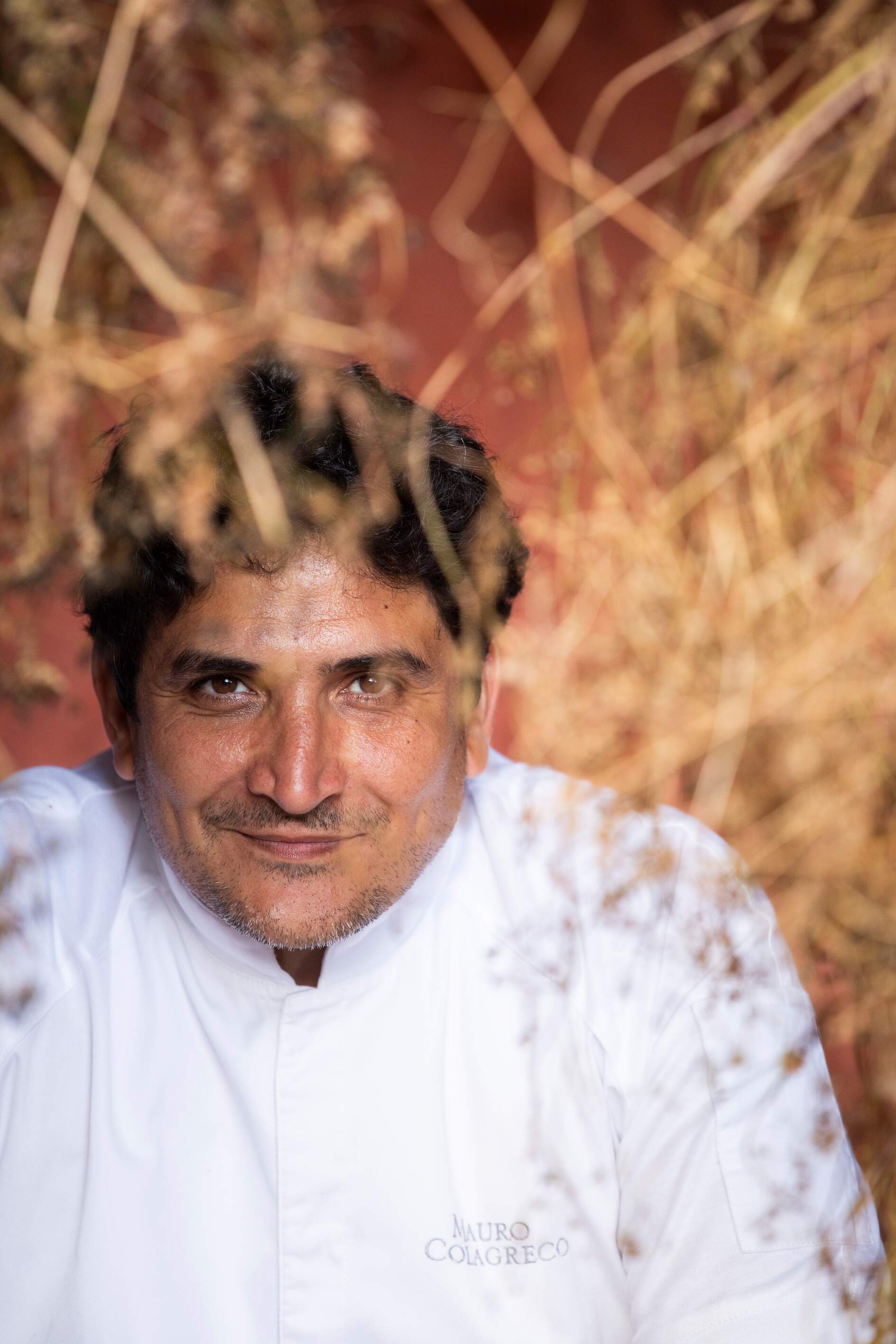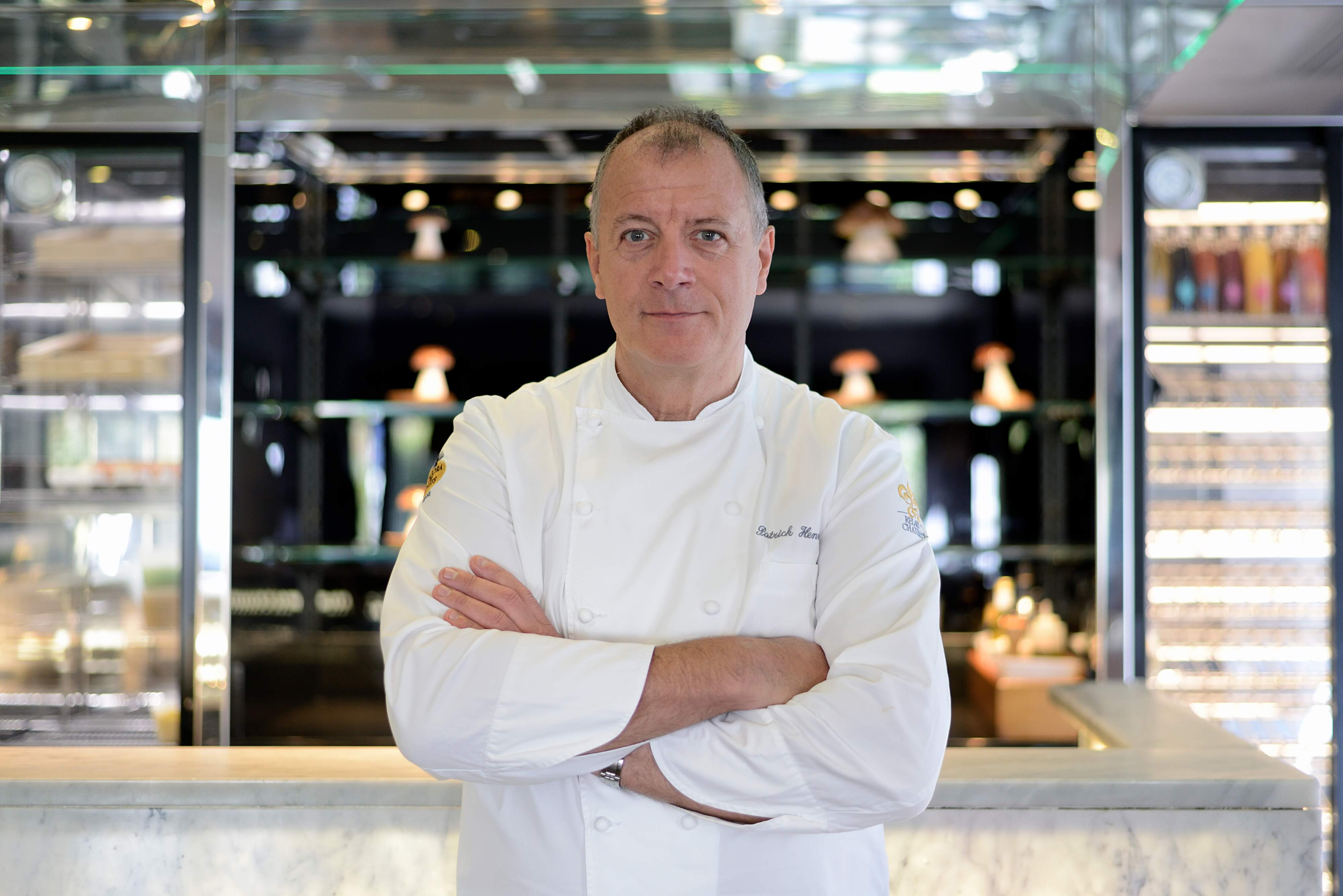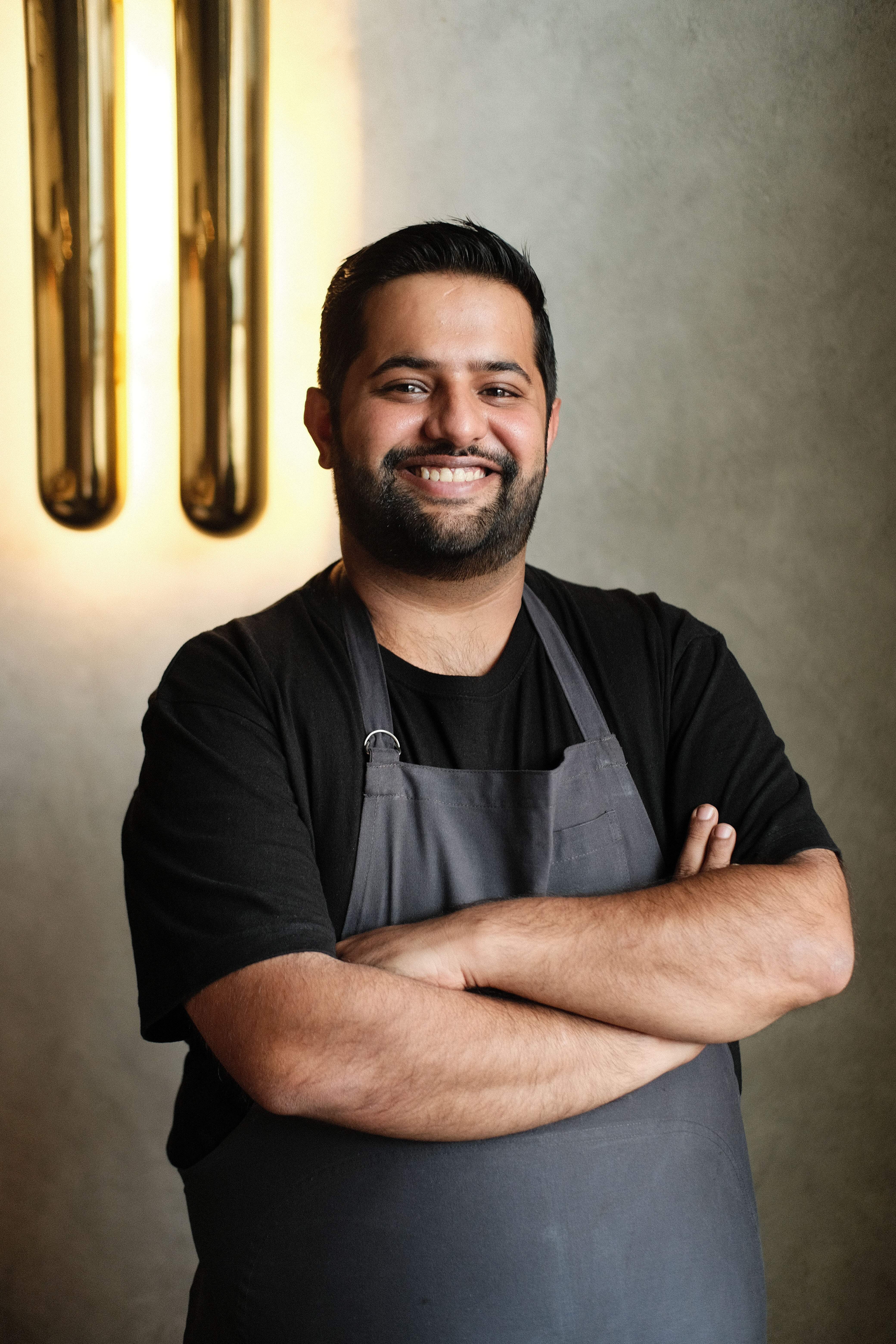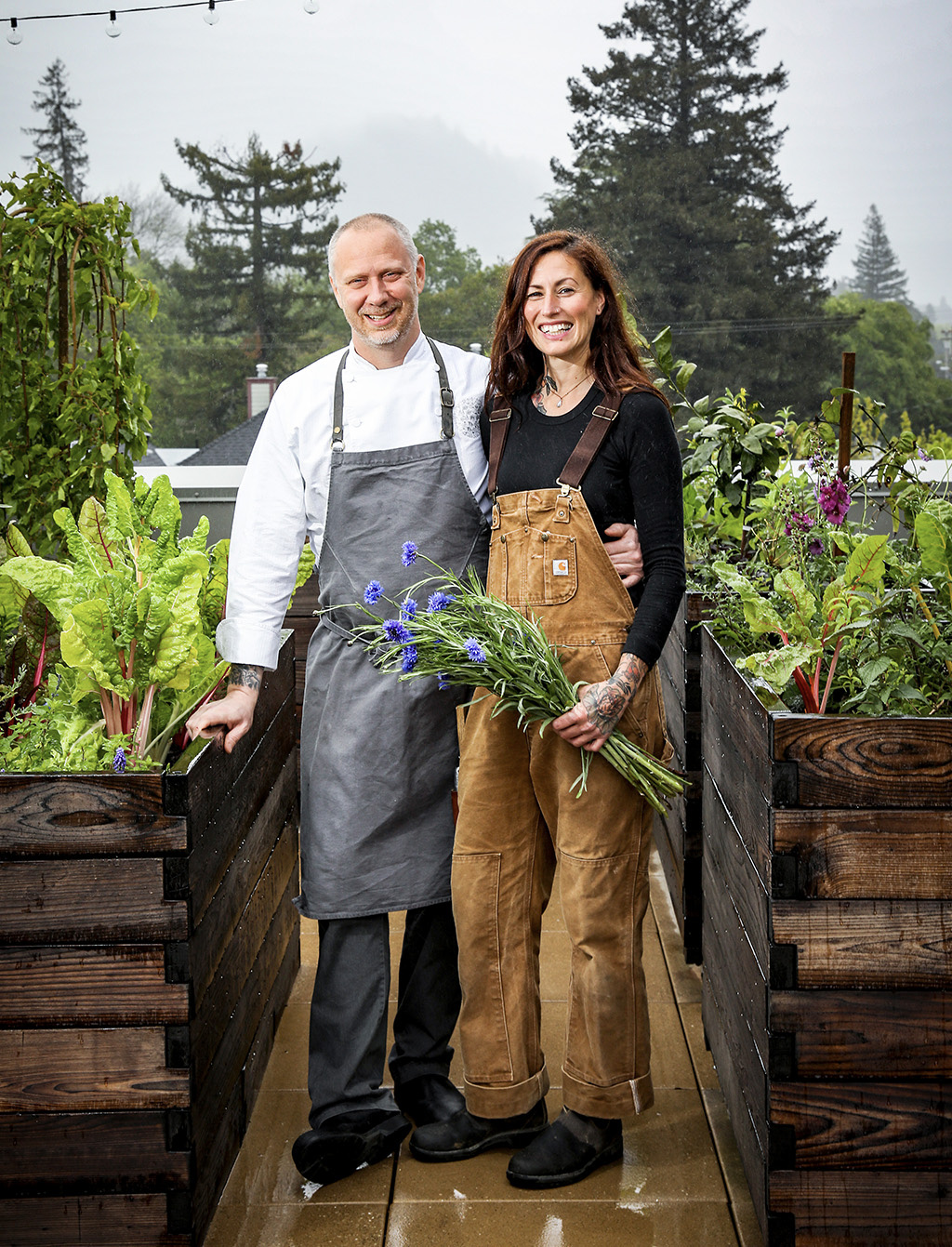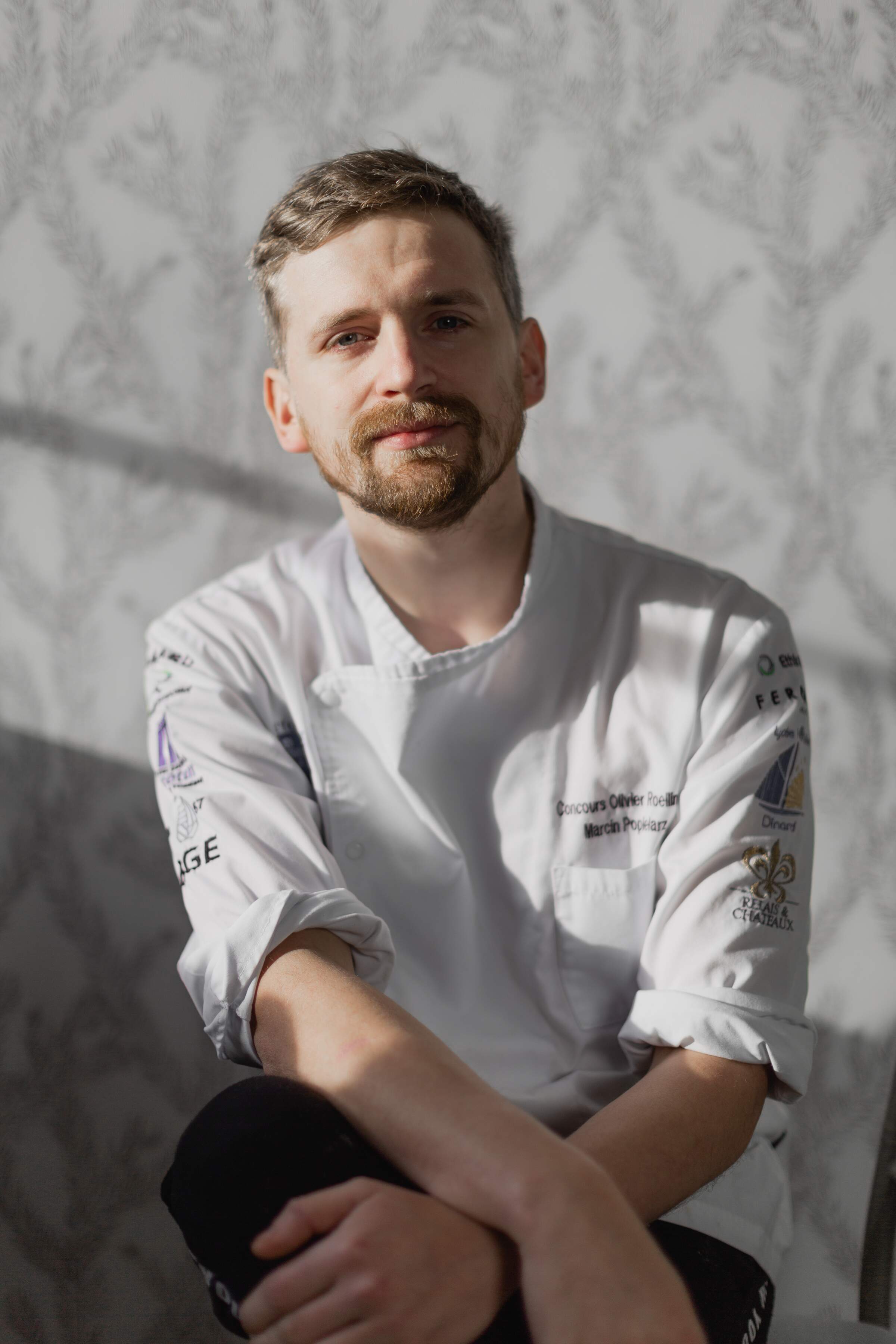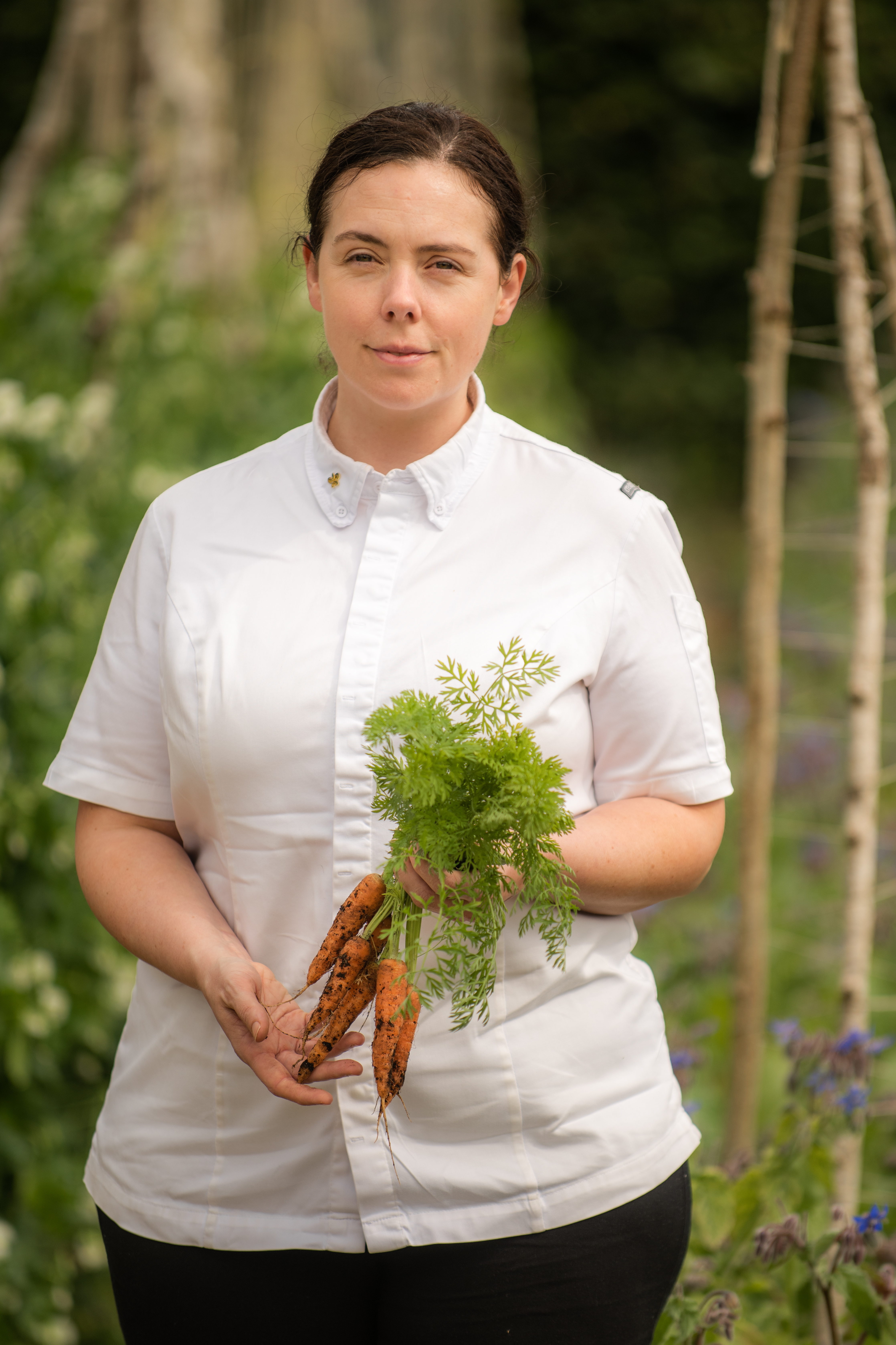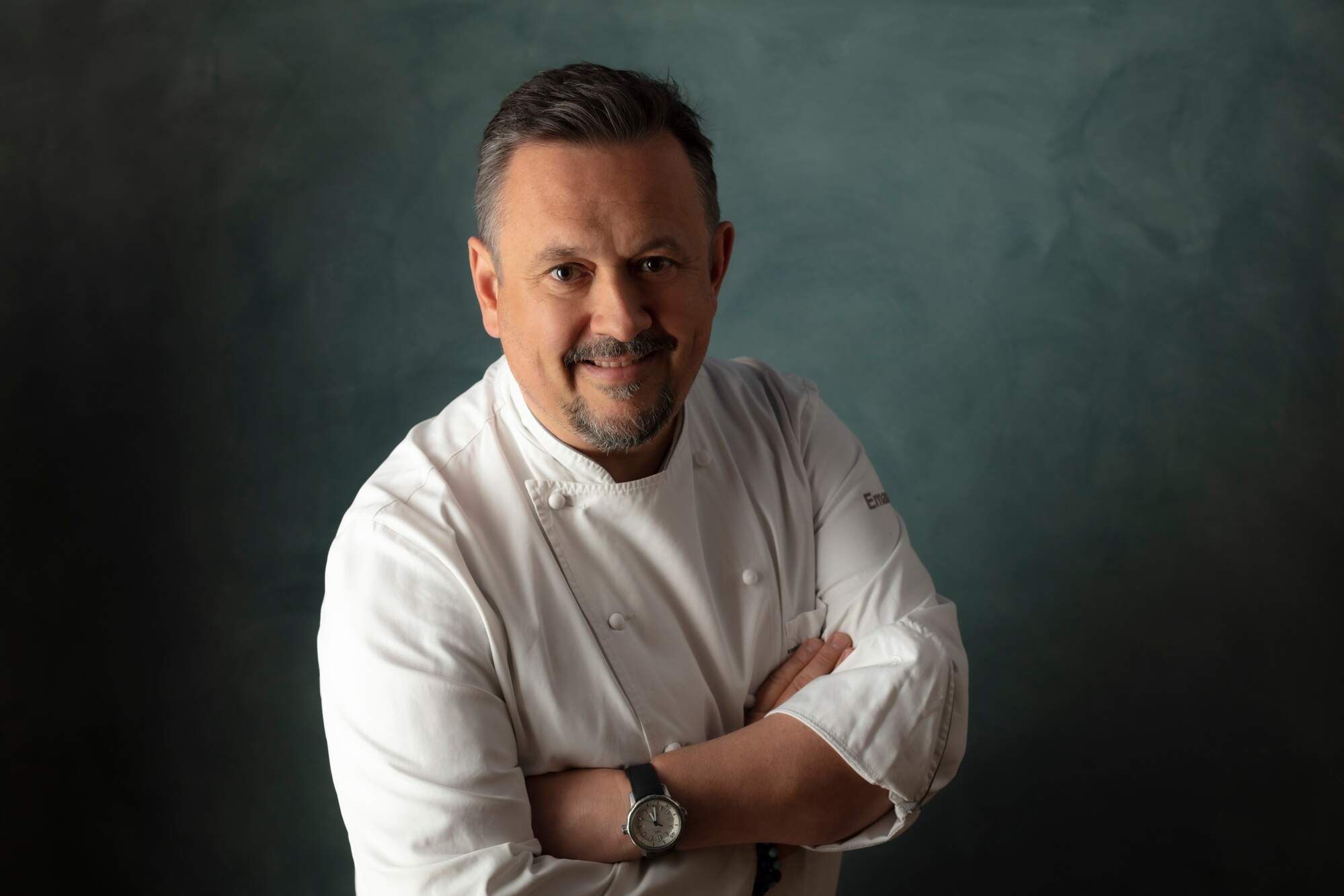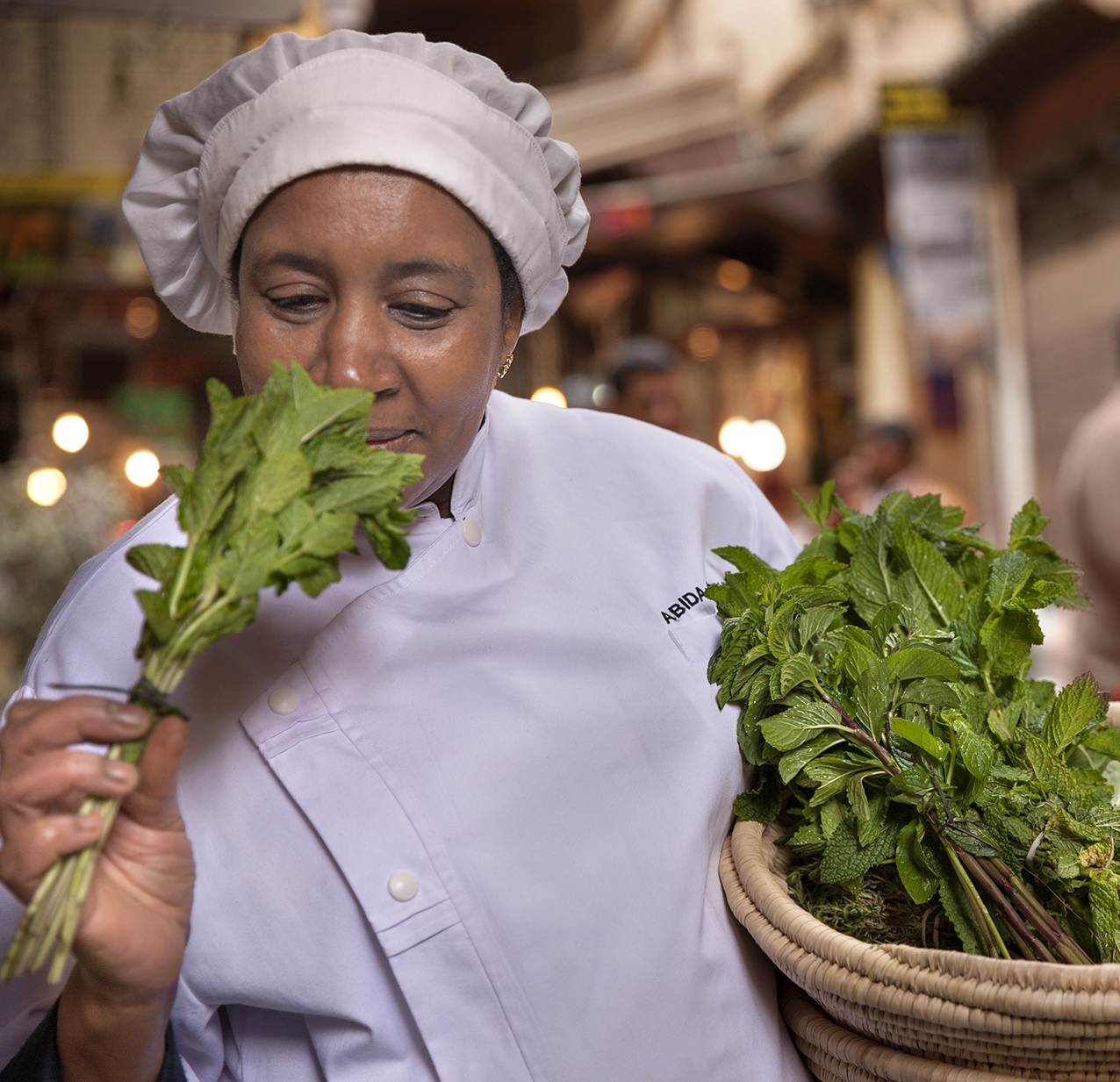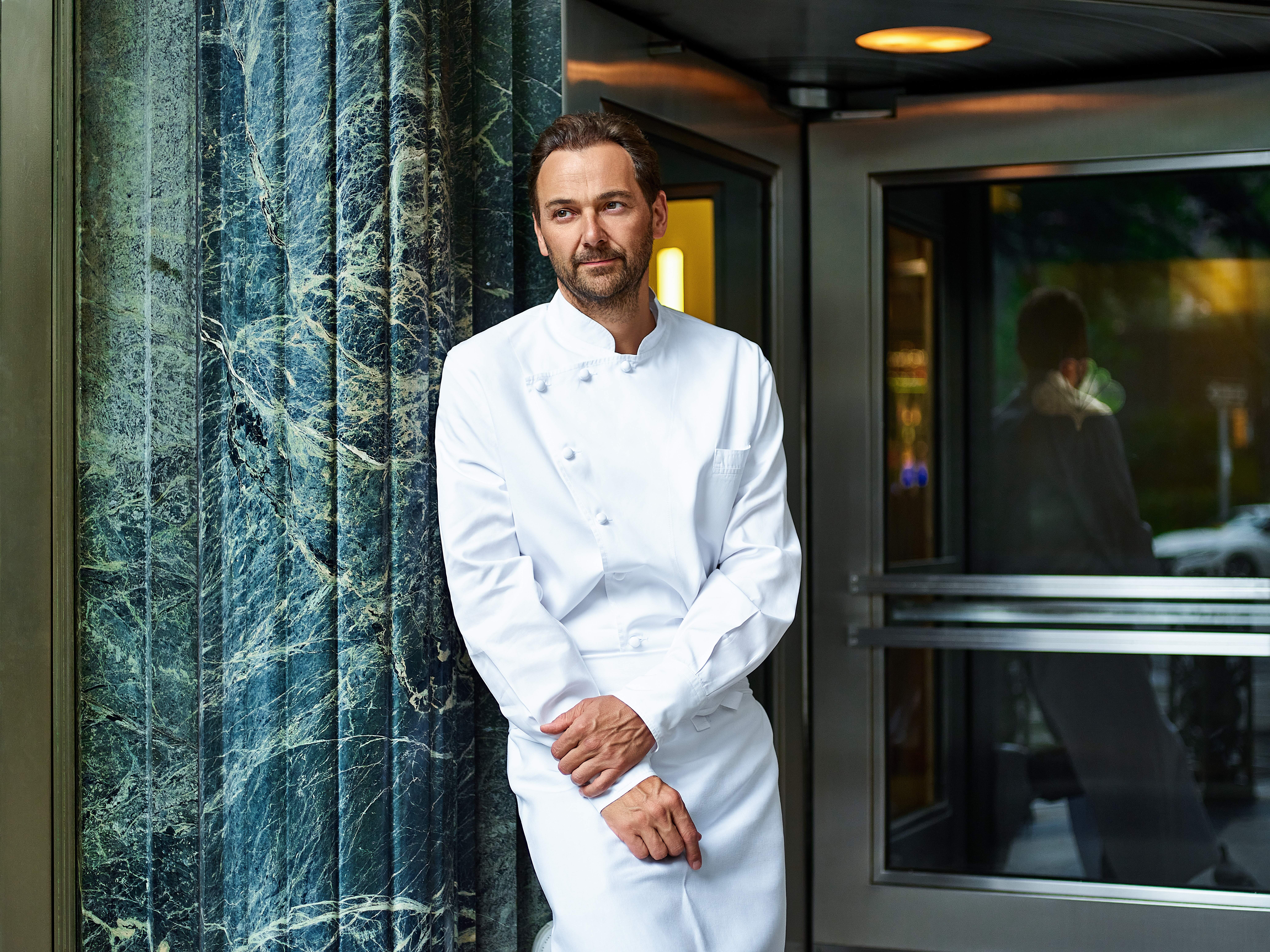Relais & Châteaux chefs join forces with Slow Food to ‘Plant the Future’
The Slow Food ‘Plant the Future’ campaign aims to accelerate a global transformation of what we eat by inspiring restaurants and home cooks everywhere to adopt a plant-rich approach.

The Slow Food ‘Plant the Future’ campaign aims to accelerate a global transformation of what we eat by inspiring restaurants and home cooks everywhere to adopt a plant-rich approach.
To mark its 8th collaboration with the international movement Slow Food on the annual Food For Change initiative, Relais & Châteaux is inviting chefs at its 580 properties to join Slow Food’s Plant The Future campaign and continue to become more plant-rich by following nine key principles, embodied by nine chefs around the world.
The goal is to push the boundaries of fine dining and shine a light on the innovative and nutritional power of vegetables, legumes and pulses, whole grains, cereals, algae, nuts and seeds, mushrooms, seaweed and fermented foods. ‘Plant The Future’ is designed to raise awareness about the impact of factory farming, intensive fishing and the lower environmental footprint of plant-rich diets. It aims at sparking a fundamental transition within Relais & Châteaux’s 580 global properties – and, more widely, the general public. Beyond its benefits for the health of humans, a diet rich in plants is also respectful of the animals and the environment.
Over-consumption of animal-centered diets are associated with negative environmental impacts and multiple crises of public health. By contrast, plant-rich diets contribute to better health thanks to their protein, fibers and micronutrients content and can reduce our global ecological footprint. For the protein found in every 100g of legumes, only 0.9kg of greenhouse gases are emitted, as opposed to 35.5kg for the same amount of beef protein. (United Nations*)
Mauro Colagreco, Vice President, Chefs of Relais & Châteaux, said: “Our network of outstanding chefs across 580 properties hold 376 Michelin stars, including 40 green stars, and have the power to change the culinary narrative. They can demonstrate how menus that feature both a plant-rich approach as well as animal proteins sourced from agroecology can rival the flavor, complexity and satisfaction of animal-centric cuisine and address the climate emergency.”
In practice everyday, 9 principles recommended by Slow Food
MANIFEST CHANGE THROUGH PLANT-RICH DISHES
… like Patrick Henriroux (La Pyramide, France)
Balance your menu, enriching it with flavorful fruits and vegetables, tasty legumes, juicy mushrooms, salty seaweed, fermented foods and crunchy nuts: in a word, diversify!
Tomatoes produced within 10km of the restaurant, crunchy asparagus brought every morning without ever being refrigerated, and an ongoing dialogue with market gardeners from all over the Rhone Valley: for 35 years, plants have been the focus of Patrick Henriroux and his executive chef David Castagnet. And for the last four years, plants have been at the heart of the plate too, representing 60 percent of each dish, with meat or fish accounting for only 40 percent–a small but significant adjustment that turns the table on convention. This transition has demanded careful planning, hard work and flexibility, as the availability of produce can be subject to last-minute changes due to the weather. In addition, the restaurant has begun collaborating with a specialist partner to develop an innovative biodegradable composter that creates energy from organic waste–meaning that even the smallest amounts of plant waste have a value in this ‘circular’ system.
AVOID FACTORY FARMING
… like Enrique Olvera (Pujol, Mexico)
Talk to your suppliers to understand where and how your ingredients are produced. Choose suppliers with high standards and environmentally friendly practices–then communicate this to your customers.
The soul of Mexican cuisine, corn, is too often reduced to its commoditized yellow variety, intensively cultivated from GMO seeds. However, families across the country have preserved hundreds of ancient varieties in a spectrum of colors and shapes. Enrique Olvera chose to honor their work in supporting biodiversity in his homage to his country's cuisine. Cultivated using milpa, one of the oldest permaculture techniques where squash, beans, corn, and wild herbs help each other grow, these native corns are at the heart of Olvera's menu. They are used, for example, to make tortillas that are served with Pujol's iconic 'Mole Madre'. This traditional sauce, 100 percent plant-based, is made with fruits, nuts, spices, and chilies. It is aged for close to 4,000 days and represents authenticity and a return to roots that illustrate the strength of traditional agricultural practices in respecting biodiversity and taste.
CONSCIOUSLY CHOOSE YOUR SUPPLIERS
… like Varun Totlani (Masque, India)
Pick ingredients with known sources, favoring shorter supply chains and producers who follow agroecological principles, respect animals, ensure workers’ rights and safeguard the planet.
Tasting, selecting and showcasing the best local ingredients: this is Varun Totlani's mission, and he takes the necessary time to go to each region to reveal its uniqueness. In a country like India, ingredients, techniques and recipes change every 100km or so, offering endless possibilities for discoveries and the promotion of local communities. Research and regional sourcing trips are integral to the restaurant's operation, allowing it to offer a unique palette of flavors to diners and help them appreciate the richness of their country. This approach represents a contemporary vision that explores the nuances of regional cuisines and ingredients, combined to imagine dishes of today: Sea buckthorn berries from Ladakh, rare citrus fruits from Himachal, or jamun fruits from Maharashtra inspire the chef while opening new opportunities for local farmers.
SAVOR THE FLAVORS THAT PROTECT THE CLIMATE AND OUR FUTURE
... like Kyle and Katina Connaughton (SingleThread Farm - Restaurant - Inn, California, USA)
Promote biodiversity by choosing a multitude of native plant varieties. Prioritize local, seasonal ingredients and supply chains that require fewer resources and create less pollution.
Katina devotes her time to the 24-acre regenerative farm, cultivating 70 percent of the raw materials used nightly in the SingleThread kitchen by her husband, Kyle. On the farm, hundreds of crops are grown year-round including more than 30 varieties of tomatoes; dozens of vegetables including squash blossoms, tomatillos and celtuce; regionally specific fruits including strawberries, cherries and apricots; all of which are all nurtured into ripeness timed to true seasonality. Proud protectors of local biodiversity, the Connaughtons have submitted the Gravenstein apple from Sebastopol to Slow Food’s catalogue of near-extinct foods–known as the Ark of Taste. SingleThread embodies the virtues of agroecology, from its use of raw, unprocessed products to its short supply chains that contribute to the economic activity of its community, its efforts to preserve its natural heritage, and the rewarding experience its guests receive. Above all, the property’s approach helps combat climate change and the wildfires associated with it in the region, because it contributes to healthier local ecosystems with improved soil health that retains moisture and reduces fuel load.
EMBRACE THE VERSATILITY OF LEGUMES
... like Marcin Popielarz – Quadrille, Poland)
Explore the ‘leguminous biodiversity’ of your area: pulses are healthy and delicious, and if sustainably produced, they have a low environmental impact too.
Lentils, peas, soybeans, beans, chickpeas or broad beans: the large family of legumes includes more than 1,000 different varieties, the source of many traditional recipes worldwide. As well as being a significant source of plant-based protein, legumes contribute to soil fertility and are known as ‘green manure’ for their ability to naturally fix nitrogen. In Marcin Popielarz's kitchen, these treasures of nature are particularly revered, including the Piękny Jaś bean, literally ‘beautiful John.’ Grown only in 11 municipalities of Małopolska (also called Lesser Poland), this large white bean is distinguished by its thin skin and delicately sweet taste. Its cultivation, requiring much care, has been preserved thanks to its inclusion, submitted by the chef, in Slow Food’s Ark of Taste, ensuring its culinary possibilities can continue to be enjoyed. As a fervent advocate of vegetables and legumes, which make up 60 percent of his culinary creations, Marcin Popielarz celebrates the perfect marriage of tradition, flavor and sustainability.
REJECT ULTRA-PROCESSED FOODS, WHETHER PLANT- OR ANIMAL-BASED
... like Danni Barry (Ballynahinch Castle, Ireland)
Avoid industrially manufactured products with long lists of ingredients. Let’s support companies and producers that support our food systems, not companies that ruin them.
Raised on a farm, Danni Barry firmly believes that food is respected more when you know exactly where it comes from, whether animal or plant-based. When food comes from a factory, it does not express the richness of a terroir and lacks the emotional charge needed to inspire chefs. For her, good ingredients are the most important thing in a kitchen because they are the very source of a chefs' creativity and the guest’s pleasure. A super-fresh product, whose origin is known as well as who cultivated it, is treated with much more respect in the kitchen than an industrial product from an impersonal box. By favoring fresh, local, and seasonal ingredients, the menu almost writes itself, composed authentically and naturally. The diversity of seasonal products and their ephemeral availability according to each harvest promise unique dining experiences and freshness of flavor. This positive approach supports local producers and encourages innovation in terms of what they cultivate.
MAKE YOUR KITCHEN WASTE-FREE
... like Emanuele Scarello (Agli Amici, Italy)
Reuse scraps, donate what you don’t use and adopt a ‘nose-to-tail’ approach with meat and fish cooking, making the most of every part of the animal.
This creative chef, who is particularly protective of his terroir, has adopted a zero-waste approach as the ultimate tribute to the produce cultivated in the Friuli-Venezia region. Referring to his methodology as a Nuova Mente–meaning ‘new mindset’ in Italian–careful attention is paid to using the entire ingredient, whether in meat, fish or vegetarian dishes. For example, Godia-grown potato peels, used for gnocchi, are toasted before being transformed into a flavorful broth. Being able to taste each component of a product, even those parts conventionally regarded as waste, prepared and presented in thoughtful ways, makes dining as educational as it is gourmet. Unexplored plants naturally find their place on plates: fennel pollen, poppy buds and fig flowers, usually discarded for their small size, are treasures here that stimulate the chef's imagination.
RESTORE VALUE TO YOUR LOCAL FOOD HERITAGE
... like Lalla Abida (Riad Fès, Morocco)
Support farmers, foragers and fishers who uphold local culinary traditions by cultivating native heirloom varieties and rearing heritage breeds.
For 20 years, Riad Fès's refined cuisine has been led by Lalla Abida. While European influences have long dominated in the gastronomic world, the chef celebrates the techniques and traditions of Fès's authentic cuisine, passed down from mother to daughter–a cherished, age-old custom that reveals the prominent place legumes have held for centuries in Moroccan culinary culture. Harira soup, rich in lentils and chickpeas, and bissara, a Berber soup made from broad beans and peas, are treasures of balance and refinement that affirm their place in today's and tomorrow's gastronomic heritage. Lalla Abida’s guests enjoy dishes cooked in traditional tajines– magnificent earthenware pots ideal for marrying the flavors of iconic Moroccan spices with fresh vegetables and legumes sourced from local producers. From oven to tabletop, this ancient cooking approach stimulates almost all the senses simultaneously.
RAISE AWARENESS AMONG THE PEOPLE AROUND YOU
... like Daniel Humm (Eleven Madison Park, New York, USA)
Share knowledge with your staff and customers about the contradictions in industrial supply chains. Introduce them to the alternatives you’re implementing and how they, too, can make a difference.
Since 2021, Chef Humm’s cuisine at Eleven Madison Park has become almost entirely plant-based, demonstrating the pioneering and inspiring role that today's chefs must play in helping evolve and define wider consumption patterns. Defining himself as "not anti-meat but pro-planet," he describes this decision as "the most powerful thing we can do to fight climate change." Collaborating with chefs from the Middle East, India, Japan and beyond, he has elevated his understanding and appreciation of plant-forward diets, reframing the role of the vegetable in western cuisine and, in so doing, raising its status to that conventionally enjoyed by animal-derived products. More broadly, he has reframed the notion of culinary expertise, motivating not only chefs, restaurateurs and diners to similarly transition but also the general public to join a necessary, exciting and delicious revolution for the sake of the planet.
Edward Mukiibi, President of Slow Food, said: “The time is now: we must all take a strong stand against the climate and public health emergencies we face and improve animal welfare. By adjusting the balance toward an ecologically sound plant-rich diet, we can powerfully change the current food system and reduce the impacts of factory farming. An agroecological approach does not only involve adopting and implementing good, clean and fair agricultural practices but also plays an important role in changing social relationships, empowering farmers, respecting animals and short productive chains geared toward a holistic improvement of the world around us. This is where the fundamental role of chefs comes into play.”
Source:
*Poore, J., & Nemecek, T. (2018). Reducing food’s environmental impacts through producers and consumers. Science, 360(6392), 987-992

